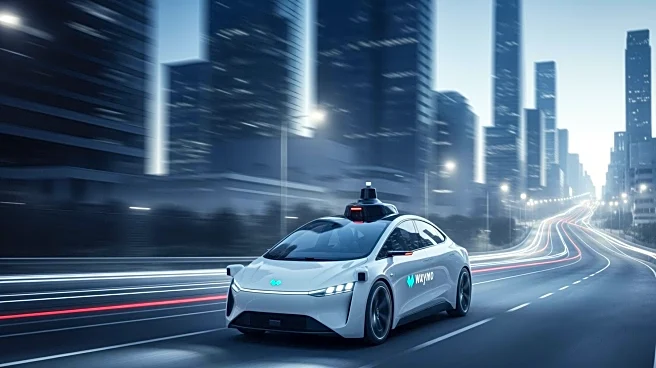What's Happening?
Waymo, a subsidiary of Alphabet Inc., has been testing its self-driving vehicles in Denver for two months, with plans to launch public services next year. The company aims to expand its operations to several
other U.S. cities, including Dallas, Miami, and Las Vegas. Despite the technological advancements, Colorado lacks independent regulatory oversight for autonomous vehicles, raising concerns about safety and data privacy. State lawmakers have allowed tech companies to deploy these vehicles as long as they adhere to traffic rules, but have blocked local governments from imposing bans. The expansion is part of Waymo's broader strategy to increase its fleet of driverless taxis across the U.S.
Why It's Important?
The introduction of Waymo's self-driving cars in Denver highlights the growing presence of autonomous vehicles in urban transportation. This development could significantly impact the ride-hailing market by offering a potentially safer and more efficient alternative to human-driven vehicles. However, the absence of regulatory oversight raises questions about safety, data privacy, and the ethical implications of machine learning in public spaces. The situation underscores the need for comprehensive policies to address these concerns while fostering innovation. Stakeholders, including local governments and the public, may face challenges in adapting to this new technology without clear regulatory frameworks.
What's Next?
Waymo plans to expand its operations to additional cities in 2026, including Seattle, Detroit, and Philadelphia. The company is also preparing to launch services in international markets like London and Tokyo. As the rollout continues, there may be increased pressure on state and federal authorities to establish regulatory guidelines for autonomous vehicles. Public acceptance and trust in self-driving technology will be crucial for its success, and ongoing discussions about data privacy and safety will likely shape future policies. The expansion could also prompt other tech companies to accelerate their autonomous vehicle programs, further transforming the transportation landscape.
Beyond the Headlines
The deployment of autonomous vehicles raises ethical and societal questions about the role of technology in daily life. As machine learning becomes more integrated into transportation, there is a need to consider the implications for employment, urban planning, and public safety. The potential for reduced traffic congestion and environmental benefits must be weighed against concerns about data security and the loss of human oversight. The situation in Denver serves as a case study for other cities considering similar technologies, highlighting the importance of balancing innovation with public accountability.










